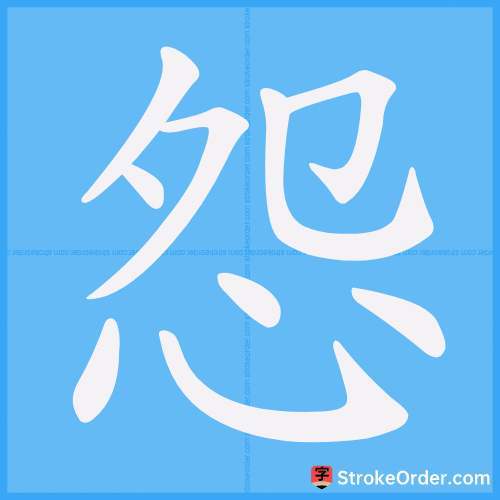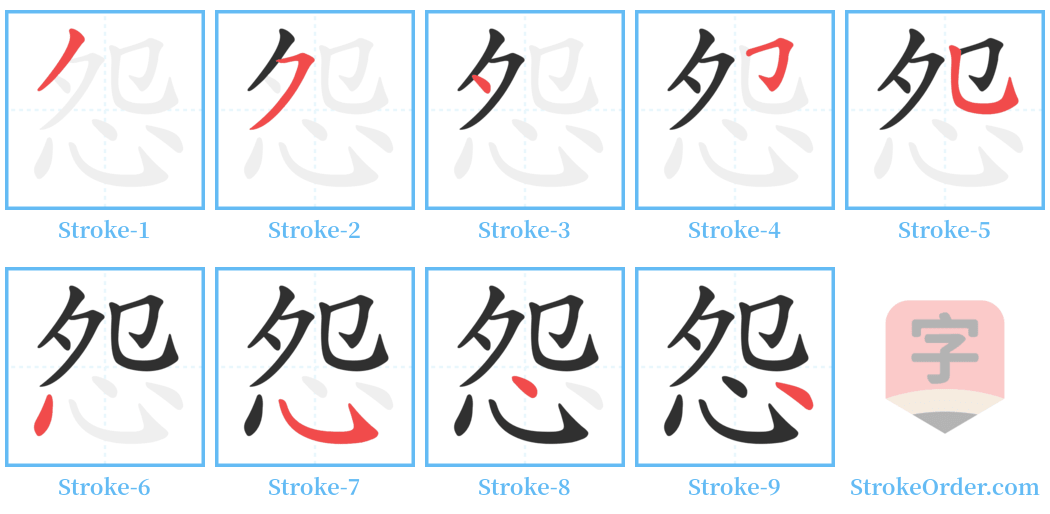怨 Stroke Order
Animated Stroke Order of 怨

Stroke Order Diagrams for 怨

Step-by-Step Handwriting Guide for 怨

Learn to Write Chinese Characters with Video Tutorials
Watch the video of writing the Chinese character "怨", learn the correct stroke order (笔顺) of the character "怨", and master the standard way of writing the character "怨".
Free Printable Handwriting Practice with Stroke Order: 怨
Printable Writing Practice Worksheet of "怨" in Portrait Orientation (Tian Zi Ge)

Printable Writing Practice Worksheet of "怨" in Landscape Orientation (Tian Zi Ge)

Information of 怨
Pinyin
yuàn
Radical
心
Strokes
9 strokes
Usage
★★★★★
Definition
blame / complain
怨 [yuàn]
Verb:
1. Hatred; grudge
- Example: 仇恨, 恩怨, 宿怨, 怨仇, 怨敌, 怨府 (objects of common resentment), 怨声载道.
- Meaning: To rankle; to grudge ([En.] rankle; grudge)
2. Dissatisfaction; blame
- Example: 埋怨, 抱怨, 怨言, 任劳任怨.
- Meaning: To blame; to reproach; to complain ([En.] blame; reproach; complain)
3. Satire
- Meaning: To satirize ([En.] satirize)
4. Departure
- Meaning: To take leave ([En.] take leave)
5. Sorrowful complaint
- Meaning: Plaintive; sad ([En.] plaintif; sad)
Noun:
1. Hatred; enmity
- Example: 仇恨, 怨仇 (animosity; enmity).
- Meaning: Animosity; enmity ([En.] animosity; enmity)
2. Enemy; foe
- Example: 怨家.
- Meaning: Enemy; foe ([En.] enemy; foe)
Additional Notes:
- The character originates as a form of pictophonetic construction: it combines the meaning component "heart" and the sound component "怨".
- References and usage in classical texts: Various literary citations illustrate the concept of resentment and blame in contexts of interpersonal relationships and moral discussions, nuanced by cultural reflections on human emotions and social conduct.
*(Source from traditional dictionary explanations)*
*(Also has an alternative pronunciation.)*
lit. cries of complaint fill the roads (idiom); complaints rise all around / discontent is openly voiced
Input Method for 怨
Pinyin
yuan4
Wubi
qbnu
Cangjie
nup
Zhengma
rsyw
Four Corner
27331
Unicode
U+6028
Same Pronunciation Characters